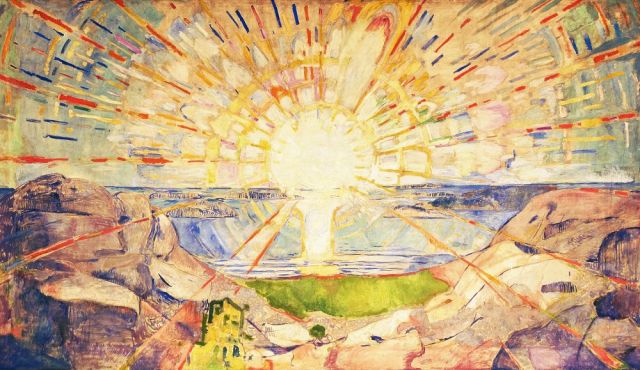
The content war requires bodies. Freelancers stand on line outside new media’s office building, the queue stretching back to Jersey: some writers hold crisp pitches fresh from the imagination; others look for staff positions with resumes tucked under their arms; all of them audition for pittances relative to the value of their words, their lives. Give a writer a check, and watch his eyes brighten; tell a writer his work is priceless, and listen to him ask about that check.
Once upon a time, I fantasized a life in which I worked as a staff writer somewhere—Buzzfeed often came to mind—and said life would see my heart at ease, and my mind sanguine with a type of delight reserved only for those who know what they want from their lives, pursue it, then achieve it. Then one day, I woke up. Writing for Buzzfeed, or Vice, or anywhere else, full-time, would be a direct path to madness, anathema to an artistic thrust I hadn’t previously noticed. And then, it all became clear: my insufferable nature, my mercurial temperament, my attraction to torpor, is all explained, in part, because I’ve stumbled into the life of an artist. Am I an artist? Yes, but are you? Do you desire artistry over “writing”? Would the “artist” label explain more of you than that of “writer”? What does it mean to be a writer when everyone else is a writer?
Sometimes the fact that everyone in the world writes can be wonderful, because you find fellow-writers everywhere, and sometimes it can be a drag because illiterate jerks strut around sporting all the defects and none of the virtues of a real writer. As Nicanor Parra said: it might be a good idea to do a little more reading.
-from Between Parentheses
I’m trying to get back to writing outside the pitch, the assignment. I want to loosen up; that was how I put it to myself as I harassed myself to promise myself to write an essay simply because I want to, and not because I’ve been asked, or paid: Yes, I want to loosen up with my work. Maybe that’s why I blew the dust off my Tinyletter. This used to be called “Deleted Tinyletters,” but then I was aghast to see, per metrics, that no one read said Tinyletter, and most likely deleted them. I want to talk to you, reader. Isn’t that why I—writer, artist—am here? Isn’t that my purpose?
“I write more to amuse myself than to tell you anything…Only commercial letters are mailed. All the rest should, at least for the superior man, only be from him to himself.”
from The Book of Disquiet
Point taken, Soares, but that’s not so giving, is it? No one understands the loner except she who is a loner herself. This has nothing to do with solitude, or loneliness as philosophy, or being single as a declaration of war. A loner, to me, is naturally attuned to the human state of separation, that we, individually, enter and exit this world by ourselves—a state that is beyond solution; a loner feels the itch behind the heart, a warship behind the sun that cannot be seen, but is understood—felt—and groped at with insignificant poetry and terrestrial melodies primitive in key and reach when compared to the sound of two black holes colliding, but loners try anyway. I write as a loner, and I most certainly write to amuse myself, but then—being the loner that I am—I occasionally poke with my words the fabric separating you and I, to see if it is finally penetrable.
“What makes humans unique? Gravity keeps us down, but I flew here on an airplane. I lost my voice, but I can speak through a voice synthesizer. How do we transcend these limits? With our minds and our machines.”
Dr. Stephen Hawking
This past Saturday, I sat on a panel in Brooklyn—that I agreed to do a panel on a Saturday afternoon was sacrilegious, but not unforgivable—and talked, in part, about the internet, about Twitter, about how, with my machines, I carved out a community of writers and artists for myself, the contours of which are fluid at best. That this happened at all used to fascinate me, but now it only makes me remove my glasses and rub my eyes, fatigued and bored. The community will not save you; it might relieve the anxiety, but only temporarily. Nightly literary outings in New York will momentarily alleviate a persistent malady presented as panic, but the problem isn’t the panic itself, but the slippage of time.
Time is our mink, our Lexus, our mansion. In a room full of writers of various kinds, time is probably the only thing that can provoke widespread envy more than acclaim. Acclaim which of course means access to money, which then becomes time.
Speaking of machines, the Apple Watch comes with a feature called “Time Travel.” Twist the crown and watch the watch move the clock forward or backward; the idea is to see past or future information on your wrist, such as meetings, reminders, and the weather forecast. I never use it. I hate it when I accidentally activate it. I have the ability to time travel on my wrist, which is to say I have nothing, nothing at all but another screen, which isn’t just a screen, but is still nothing, nothing at all. Our screens inform us of everything, but give us nothing, not even decent content to read, more times than not.
